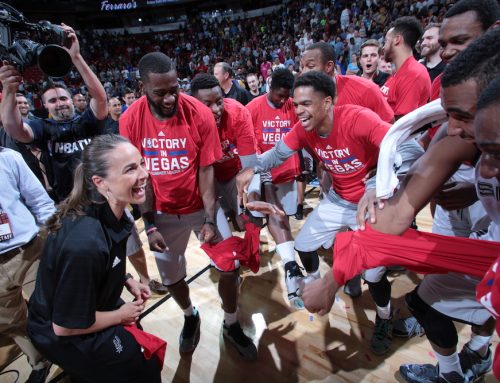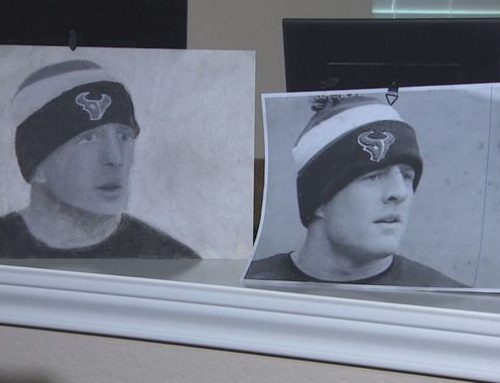via www.forbes.com by Mark Fidelman
“Crazy, crazy, these people are crazy. South By Southwest is crazy. A crazy, crazy conference made crazy, by crazy people.” That line still sticks because of the eight crazies. It was yelled across the room by an important sports agent, an uptight, uptight, uptight woman. A tight-lipped, tiger-tongued diva with black, square rimmed glasses.
She was reacting to the carnival of attractions courtesy of all the clever advertising agencies with their clever ideas and clever means of displaying them. Nothing was leftunbranded, nothing untouched, nothing sacred.
For her, South By SouthWest (SXSW) is the physical manifestation of everything we dislike online. Intrusive banner ads, unwanted content spam and too often finding the wrong information from the wrong people in the wrong venue.
While I disagreed with her SXSW musings (it’s part of the charm), we did find common ground on how marketers are marketing online. It needs to change.
This was the first year for the Sports Marketing track at SXSW(called SXsports) and so I managed to quickly deduce that it was her first year at the event. Home base for the track was laid out in a small, thirty by twenty foot room in a shadowy corner of the Driskill Hotel. The room was small, but the ideas were big. She was there to learn about the new changes afoot in her industry, so I told her what I knew.
This is what I shared with her:
1. Endorsements and sponsorships will increasingly be handled online by online marketplaces.
“We were able to put together a high impact, athlete endorsement campaign for the SuperBowl in 9 days,” Knoda CEO Kyle Rogers, “And since athletes have a powerful emotional connection with their audiences, our campaign exceeded our expectations by delivering thousands of new leads and followers.
Knoda, a social prediction service where fans predict the score of sports games, found that working with influential athletes has a higher ROI than more traditional means of advertising. They used an online platform called Opendorse which is establishing itself as one of the go to places for marketers that want powerful and fast results from influential athletes.
2. Social marketing will enable influential people in sports to sell products directly to their fans.
It used to be that a brand had to have deep pockets and wide distribution to launch a new product, now they can do it by leveraging the networks of a few influential people. Look no further than Cristiano Ronaldo, a Portuguese soccer player or actor Vin Diesel. Anything they promote will become famous.
As we all know the key to any form of endorsement is authenticity . Fans won’t put up with disingenuous product recommendations, so smart brands will ensure the athlete likes and uses their product or service.
But this isn’t just for big companies. Small companies are increasingly sponsoring up and coming athletes, coaches, and trainers with large networks in hopes that they will influence their fans to buy their products. This hadn’t happened before because small companies couldn’t afford famous athletes and didn’t want to work with undiscovered athletes who had no means to create a community around their personal brand. That’s all changed.
3. We’ll soon be able to accurately measure Athlete engagement and impact
One of the highlights of the Sports Marketing track was a company called Stout Social who recently launched the MVP Index. The company’s product is still in beta, but gave me a sneak peek of what’s coming. They showed me who is most engaging with their fans and who is most marketable. Who is moving the social needle and who has flat lined.
With real social metrics about athletes, brands will be able to justify their endorsement and sponsorship spend, while feeling more confident about getting fair market value for fair market spend. This type of social sports engagement data is the beginning of a new age in sports marketing because spend can be tied to outcomes, and outcomes to ROI.
4. Sports influencers will work together to create a network effect
Oyo Sportstoys makes little sports toy figures that look like Lego characters. They’re an NFL licensee and wanted to do something remarkable around the SuperBowl. But theSuperBowl had crept up on them and they didn’t have much time to find, negotiate, hire, explain and run a campaign with NFL athletes. So like Knoda, they turned to Opendorse and got it all done in 10 days.
Fortunately, Oyo had created some content, so they hired Opendorse athlete’s to promote and share every piece of content created during theSuperBowl. According to Opendorse CEO Blake Lawrence, the results were remarkable, “We measured 2.8 million impressions, 10,000 click throughs to Oyo’s website. That equates to around $0.50 an engagement and $1.33 CPM.”
Lawrence told me that the added branding benefit of being associated with these athletes with established trust gave a huge boost to Oyo’s brand. Remarking that this type of customer engagement is far more valuable than a banner ad or any other form of traditional advertising.
5. Sports agents and managers will have more solutions to monetize their clients and their teams.
All of this is good news for agents and managers as they will have more options to bring their clients. In the near future, as athletes, coaches, trainers and teams understand how to turn themselves into media powerhouses and content creators, several new options will be available to agents and managers to monetize.
They won’t be waiting for the phone to ring anymore, they will be participating in marketplaces that are matching up brands with influencers, content with products, data with results. Smart agents and managers will recognize that their world is about to change for the better – and the earlier they understand how to use these new solutions will give them a competitive advantage in the future.




